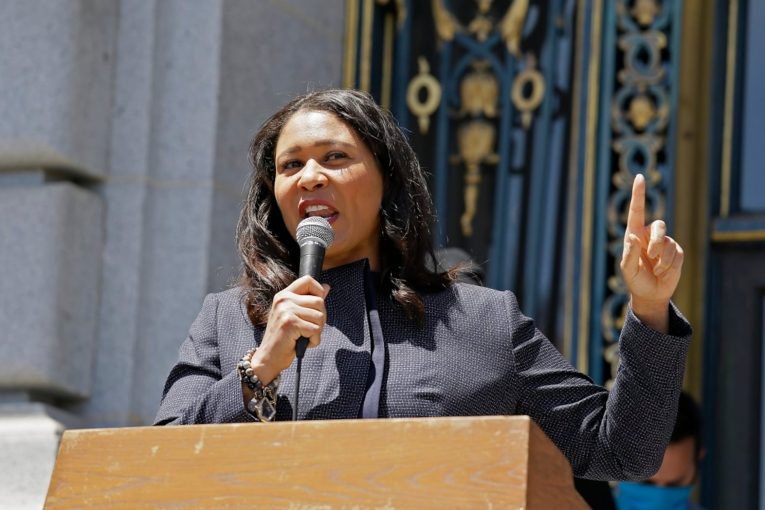

By Ankita Joshi
SAN FRANCISCO, CA – Since the pandemic, San Francisco – where crime overall is down – has faced an increase in burglaries, as well as an increase in the percent of homelessness of which there are 8,000 people of 875,000 without a home.
This overall atmosphere in San Francisco has resulted in the number of new city residents decreasing by 50 percent in 2020, and the departure rates increasing by 21 percent, according to recent statistics.
This past December, Mayor London Breed pledged to end “the reign of criminals who are destroying our city,” which includes being “more aggressive with law enforcement” to address drug addiction, crime, and general disorder in the city.
Progressives in the city disagree with this approach, commenting that more spending in different sectors outside of the police, such as mental health care and other support services would do more to solve for these social problems. 
Affordable housing is also a point of contention – the average $3,200 apartment in San Francisco is not a feasible option for the homeless population, as well as more and more people in the city.
In an interview with the San Francisco Examiner, Margot Kushel of the Benioff Homelessness and Housing Initiative and advocate for a ‘housing first’ approach stated, “Solving the homelessness crisis will take resources and a commitment to house everyone — and then the ability to match services to the need.”
Mayor Breed has tried to streamline housing plans three different times in the past, but has been shut down by the Board of Supervisors on the basis that her plan relied on policies that have already failed in the past.
The clash between the Board of Supervisors and Breed has resulted in Breed calling some members of the Board “hypocrites” for refusing to approve her proposed development projects, despite their stance on creating new affordable homes.
This clash has followed through with Breed endorsing the recall of three school board members, all three of whom were removed from their offices earlier this week in a special recall election.
Some of her actions have included declaring a state of emergency in the Tenderloin, pushing for more surveillance cameras across the city, promoting tighter control of street vendors, expediting the hiring of health workers.
District Attorney Chesa Boudin has previously commented that the city “can’t arrest and prosecute our way out of problems that are afflicting the Tenderloin…arresting people who are addicted to drugs, jailing people who have mental health struggles, putting folks who are vending hot dogs or other food on the streets in cages will not solve these problems, and they are certainly not the only tools available.”
And, despite pushing for a more aggressive law enforcement approach, Mayor Breed has tried to take a neutral approach between progressives and conservatives in the city.
“Recognize these are human beings,” she said, adding, “We’ve got to take care of them and do what we can. But we also can’t just tolerate everything.”
An example of this includes the city-sanctioned homeless encampment on United Nations Plaza, which is near the new Linkage Center that provides basic amenities to the city’s unhoused population.
However, critics have contended that the Linkage Center has done little to provide treatment and shelter, citing it’s as an “city-sanctioned safe infection site.”
Michael Shellenberger, the author of “San Fransicko: Why Progressives Ruin Cities” has called the Linkage Center “a f***ing gigantic lie over the reality you can see on the street,” and has criticized Breed for “remain[ing] far too lenient on drug dealers and users.”
Kushel has also argued that “a focus on shelter in lieu of housing is the worst of all options” because it “costs society a lot and doesn’t solve homelessness.”
In response to criticism, Breed stated San Francisco is “not a city where anything goes. Our compassion should not be mistaken for weakness or indifference” in a press conference last December.
Breed’s approach has also given her national recognition from the Biden Administration, as well as other politicians who are focused on the need to curb crime.
She cites her own lived experience in San Francisco, stating that, “I’ve been here my entire life — and I grew up in poverty.”
Her life experience that she has used against white progressives who she states, “may care about it and believe in it and feel very strong about their convictions, [but] it’s another thing to have lived it and know what it feels like.”
These comments presumably are referencing DA Boudin who has been very vocal about his opposition to Breed’s policing approach.
And while critics of Boudin have contended that he cannot relate to the minority communities in San Francisco, his supporters have pointed out that crime as a whole is down in San Francisco.
However, with the growing tension in the city, more and more people in the city have become impatient with the lack of results, emphasizing the 83,000 voters who endorsed having a recall for Boudin in June.


Hard to know who to root for. Is it wrong to hope they all fight to the death and San Francisco rises from the ashes?
I say San Franciscan’s need to kick them all out of office and start over. Obviously what they are all doing now isn’t working. Clean the slate and start anew.